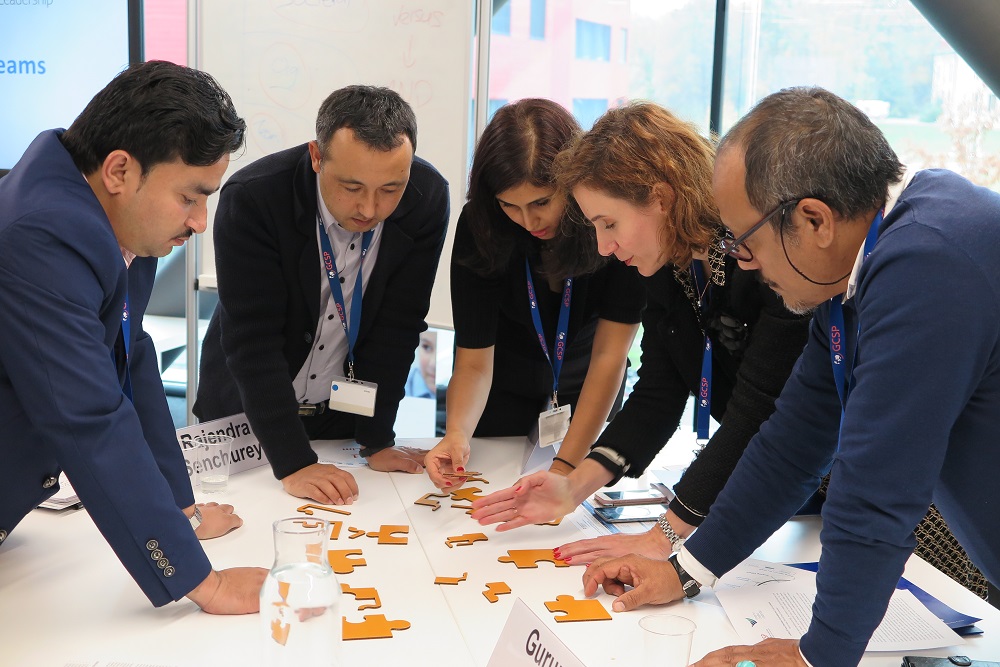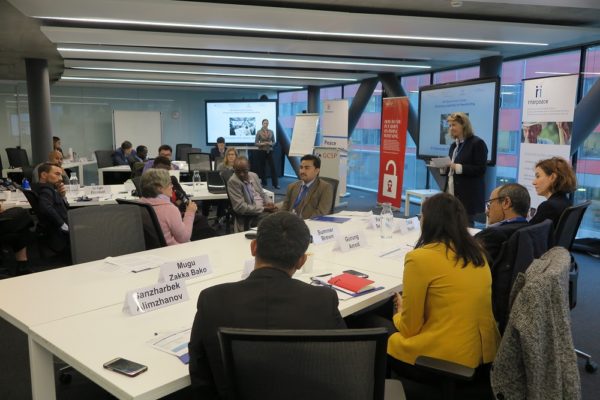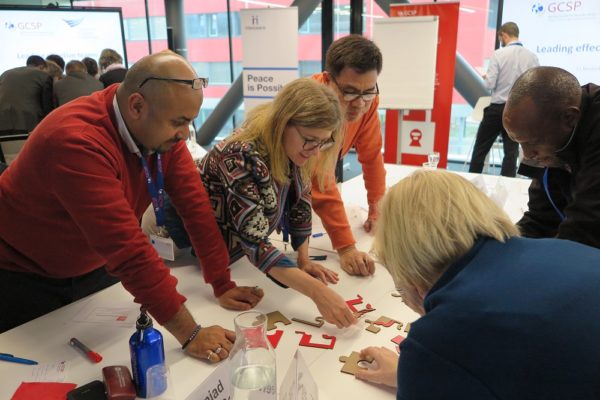Peacebuilding leadership is not about solving problems – Learning to navigate between polarities

Peacebuilding leadership is not about solving problems – whether within a team, organization or society –, but about navigating the polarities or contradictions that such a context and undertaking inherently pose.
Together with the Geneva Centre for Security Policy (GCSP) and UNITAR, Interpeace’s International Peacebuilding Advisory Team (IPAT) offered its annual week-long senior level training on peacebuilding leadership in November 2018, supported by the Swiss Federal Department of Foreign Affairs. While a series of discussions enabled critical reflections on the sustaining peace paradigm, gender in peacebuilding, the inter-cultural dimension of peacebuilding leadership, and local ownership, the most thought-provoking concept introduced to participants was that of ‘managing polarities vs. solving problems’.

Coined by Dr. Barry Johnson, polarities are about “managing unsolvable problems”. This immediately resonated with participants, who in their roles as peacebuilding leaders are confronted with unsolvable problems on a daily basis. The approach to managing polarities highlights that such complex challenges do not have a right answer or a solution. Rather, they are enduring challenges and dilemmas containing two polar opposites, that need to be constantly navigated and not solved once and for all. Focussing on either pole to the exclusion of the other one is counterproductive; effective leadership in the context of polarities requires maximizing the benefits of each pole while mitigating against the other’s potential negative or adverse effects.
The leadership literature identifies a number of such polarities that are commonly encountered by any leader, such as: planning and flexibility; decisiveness and participation; control and empowerment; caution and risk; repetition and innovation; etc. In addition, leaders in peacebuilding contexts and endeavours face a number of specific polarities that make their roles particularly challenging, including:
- Focussing on transforming conflict and focussing on building peace (see What Kind of Leadership Does Sustaining Peace Require by Interpeace Governing Board member Youssef Mahmoud who also serves as a mentor on this course)
- Meeting policy objectives set by donors and fostering local ownership
- The imperative to demonstrate results quickly and the imperative to create sustainable results
- Focussing on ‘hardware’ like institutions, laws, policies and focussing on ‘software’ such as state-society relations, intergroup relations, trust (see Hardware vs. Software)
- Leading projects/teams and advising/enabling local counterparts (a challenge we focus on in our course Effective Advising in Peacebuilding Contexts)

These polarities are deliberately not framed as A vs. B, but as A and B because the answer to the challenge lies neither in A nor B alone. The peacebuilding leaders participating in the course considered that the notion of ‘managing such challenges as ongoing polarities’, rather than having to find the one ideal solution, relieved some of the pressure they are under. It is also a concept particularly suited to peacebuilding which by definition takes place in highly dynamic contexts as it is an equally dynamic leadership approach.
Peacebuilding leadership is not about solving problems – whether within a team, organization or society – , but about navigating the polarities or contradictions that such a context and undertaking inherently pose.

Applications for the 2019 edition of the Senior Level Course Enhancing Leadership for Peacebuilding will open in April and close on 15 August.
